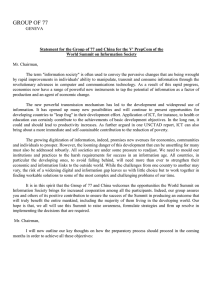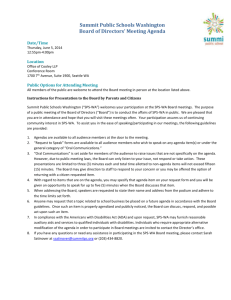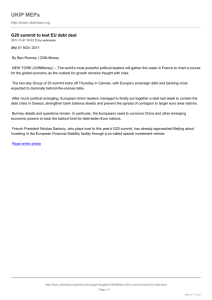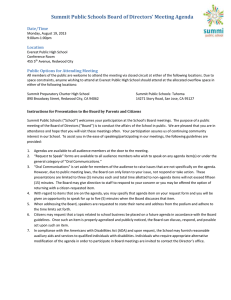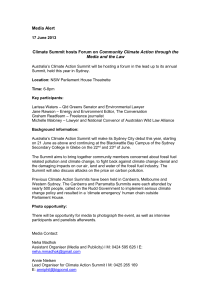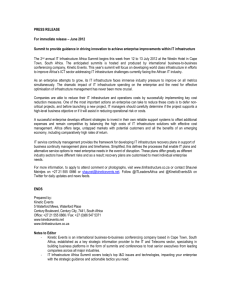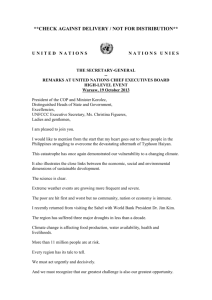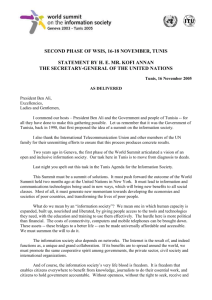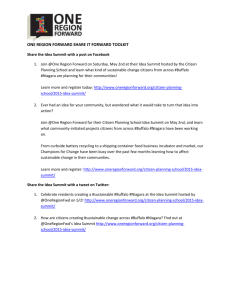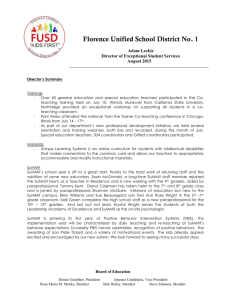Statement of Dr
advertisement
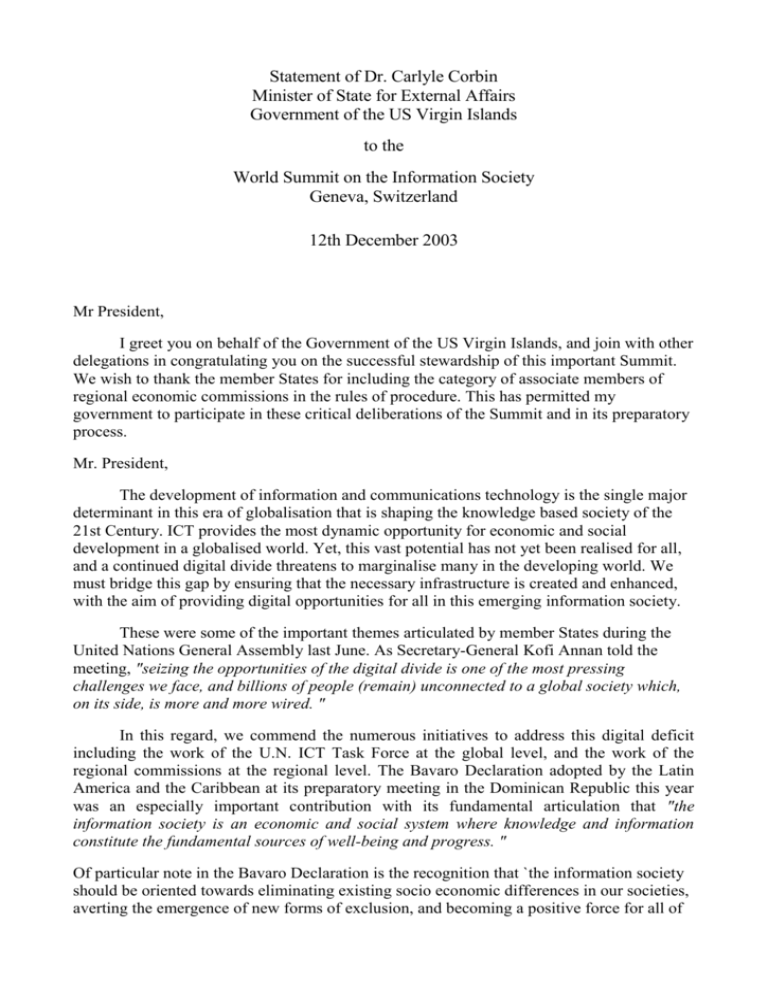
Statement of Dr. Carlyle Corbin Minister of State for External Affairs Government of the US Virgin Islands to the World Summit on the Information Society Geneva, Switzerland 12th December 2003 Mr President, I greet you on behalf of the Government of the US Virgin Islands, and join with other delegations in congratulating you on the successful stewardship of this important Summit. We wish to thank the member States for including the category of associate members of regional economic commissions in the rules of procedure. This has permitted my government to participate in these critical deliberations of the Summit and in its preparatory process. Mr. President, The development of information and communications technology is the single major determinant in this era of globalisation that is shaping the knowledge based society of the 21st Century. ICT provides the most dynamic opportunity for economic and social development in a globalised world. Yet, this vast potential has not yet been realised for all, and a continued digital divide threatens to marginalise many in the developing world. We must bridge this gap by ensuring that the necessary infrastructure is created and enhanced, with the aim of providing digital opportunities for all in this emerging information society. These were some of the important themes articulated by member States during the United Nations General Assembly last June. As Secretary-General Kofi Annan told the meeting, "seizing the opportunities of the digital divide is one of the most pressing challenges we face, and billions of people (remain) unconnected to a global society which, on its side, is more and more wired. " In this regard, we commend the numerous initiatives to address this digital deficit including the work of the U.N. ICT Task Force at the global level, and the work of the regional commissions at the regional level. The Bavaro Declaration adopted by the Latin America and the Caribbean at its preparatory meeting in the Dominican Republic this year was an especially important contribution with its fundamental articulation that "the information society is an economic and social system where knowledge and information constitute the fundamental sources of well-being and progress. " Of particular note in the Bavaro Declaration is the recognition that `the information society should be oriented towards eliminating existing socio economic differences in our societies, averting the emergence of new forms of exclusion, and becoming a positive force for all of the world's people by helping to reduce the disparity between developed and developing countries, as well as within countries." The information society should contribute to "the eradication of poverty, the creation of wealth, the promotion and enhancement of social development, linguistic diversity and cultural identity." In short, the information society should be, first and foremost, about the development of people. Inter-governmental enterprises such as the NEPAD E Schools Initiative should be encouraged and assisted by the international community. Civil society endeavors such as the School Net Africa project based in South Africa should be fully supported. These are examples of programmes with the primary aim of the development of the people. As this first phase of the World Summit on the Information Society comes to a close, we must ensure that in the implementation phase leading to Tunisia, we must continue to keep the people uppermost in our collective consciousness. Mr. President, Of the volumes of excellent material on display in the exhibition hall, one brochure for an initiative known as Schools Online caught my attention with its simple, yet profound message. "Imagine," the brochure read, "if every child, in every school had access to the internet. Imagine a world where cultures respect each other, where communities are empowered and where children learn in new ways. " Just imagine. Thank you, Mr. President.
